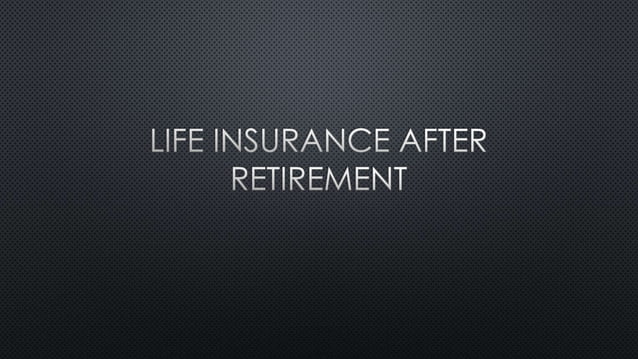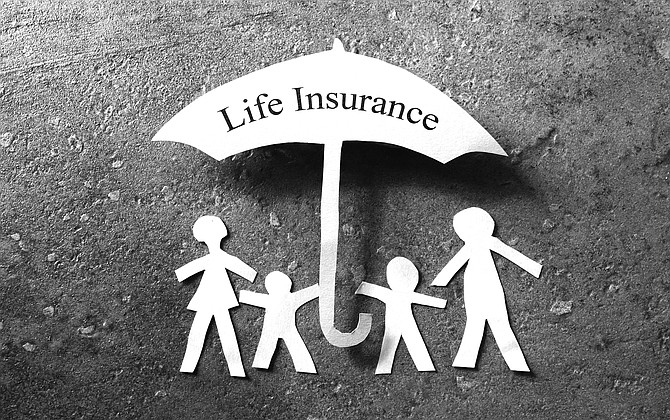Do I Need Life Insurance After Retirement

The golden years, often envisioned as a time of relaxation and financial security, can bring a host of considerations, including whether to maintain life insurance. For many, life insurance is perceived as a necessity during working years to protect dependents in case of premature death. But does that need disappear once paychecks stop and retirement begins?
This is a question that weighs heavily on the minds of countless retirees and those nearing retirement age. Understanding the nuances of life insurance needs in retirement requires a careful evaluation of individual circumstances, financial goals, and potential burdens that might be left behind.
The Nut Graf: Rethinking Life Insurance in Retirement
The need for life insurance after retirement isn't a one-size-fits-all answer. While the primary reason for coverage – income replacement for dependents – may diminish or disappear for some, other compelling reasons can justify keeping or even acquiring a policy. These include covering final expenses, paying off debts, providing for a surviving spouse, leaving a legacy, and funding estate taxes.
The decision hinges on a thorough assessment of an individual's financial situation, family needs, and long-term goals. According to the Insurance Information Institute, understanding the potential benefits and drawbacks of life insurance in retirement is crucial for making an informed choice.
Why People Keep or Buy Life Insurance in Retirement
Covering Final Expenses
Funeral costs, medical bills, and estate administration expenses can quickly add up after someone passes away. A life insurance policy can provide the necessary funds to cover these final costs, relieving the financial burden on loved ones during an already difficult time.
The National Funeral Directors Association reports that the median cost of a funeral with viewing and burial is over $7,800 as of 2021, a figure that continues to rise. Having a dedicated life insurance policy can offer peace of mind, knowing these expenses won't deplete savings or create debt for family members.
Paying Off Outstanding Debts
Many retirees carry some form of debt, whether it's a mortgage, credit card balance, or other loans. Life insurance can be used to pay off these debts, preventing them from becoming a burden on the estate or surviving family members.
This is especially important for couples where one spouse is significantly younger, as the surviving spouse may be responsible for the remaining debt. Paying off a mortgage, for instance, can provide significant financial security for the surviving spouse.
Providing for a Surviving Spouse
Even with retirement savings and Social Security benefits, the loss of a spouse's income can significantly impact the surviving partner's financial well-being. Life insurance can provide a financial safety net, helping the surviving spouse maintain their standard of living.
This is especially crucial if the surviving spouse relies heavily on the deceased's pension or Social Security benefits. The death benefit can supplement income and cover essential expenses.
Leaving a Legacy or Charitable Donation
For some, life insurance isn't just about financial protection; it's about leaving a lasting legacy. A policy can be used to provide a financial gift to children, grandchildren, or other loved ones.
Alternatively, it can be designated to a favorite charity or non-profit organization. This allows retirees to support causes they care about, even after they're gone.
Funding Estate Taxes
While federal estate taxes only affect estates exceeding a certain threshold (currently over $12 million per individual), some states have their own estate or inheritance taxes with lower thresholds. Life insurance can be used to cover these taxes, preventing the need to liquidate assets or sell valuable property.
Proper estate planning is essential to determine if estate taxes are a concern. A life insurance policy can provide the necessary liquidity to pay these taxes without depleting other assets.
When Life Insurance Might Not Be Necessary
If you have ample savings and investments to cover final expenses, debts, and provide for your spouse, life insurance may not be necessary. Similarly, if your children are financially independent and you have no other dependents, the need for coverage may be limited.
It's also important to consider the cost of maintaining the policy. Term life insurance premiums generally increase with age, and the cost of permanent life insurance can be substantial.
The Human Angle: Peace of Mind
Beyond the purely financial considerations, life insurance can provide invaluable peace of mind. Knowing that your loved ones will be taken care of financially in the event of your death can alleviate stress and allow you to enjoy your retirement years more fully.
Consider the story of Mary Johnson, a 70-year-old widow who decided to keep a small life insurance policy after her husband passed away. While she had sufficient savings to cover her expenses, the policy gave her peace of mind knowing her grandchildren would receive a small inheritance.
Making the Decision: A Careful Evaluation
The decision of whether or not to keep life insurance in retirement is a personal one. It requires a careful evaluation of your individual circumstances, financial goals, and risk tolerance.
Consulting with a financial advisor or insurance professional can provide valuable insights and help you make an informed decision. They can assess your needs, review your existing policies, and recommend the most appropriate course of action.
Conclusion: Informed Choices for a Secure Future
Navigating the complexities of life insurance in retirement requires a proactive and informed approach. By understanding the potential benefits and drawbacks, and carefully considering your individual circumstances, you can make the best decision for your financial security and the well-being of your loved ones.
Remember, retirement should be a time of peace and security. Thoughtful planning, including a review of your life insurance needs, can help you achieve that goal.


















